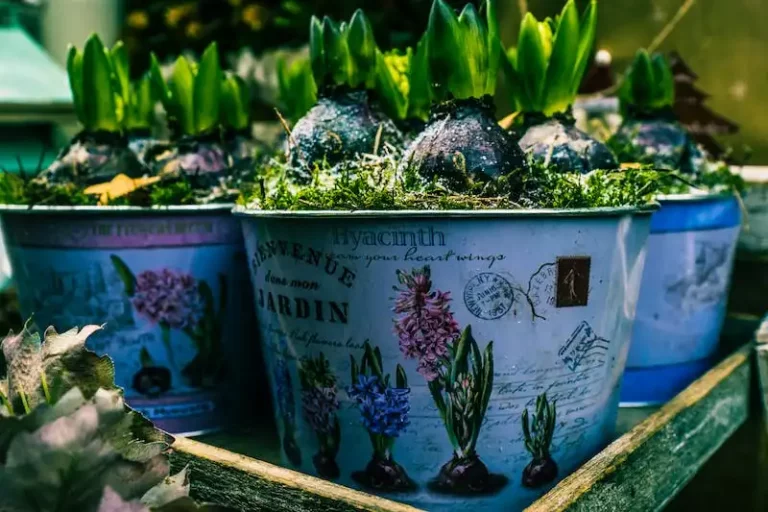Mexican bush oregano, also known as Lippia graveolens, is a popular ornamental plant with many desirable characteristics. It is native to Mexico and is often grown in gardens for its attractive foliage and unique fragrance. This versatile plant is not only used for its ornamental features, but also for its culinary and medicinal purposes.
When planting Mexican bush oregano, it is important to choose the right site. This plant prefers a sunny location with well-draining soil. It is also drought-tolerant, making it a great choice for gardens with less water availability.
Mexican bush oregano is a woody-stemmed plant that can be propagated from stem cuttings or by purchasing plug trays from a nursery. It is important to provide proper care for this plant, including regular watering and pruning to maintain its shape and promote healthy growth.
In the garden, Mexican bush oregano can be used as a border plant, a ground cover, or in containers. Its mint-like fragrance and attractive foliage make it a great addition to the landscape. This plant is also frost-tolerant, making it suitable for winter gardens.
Whether you are a gardener looking for an ornamental plant or a culinary enthusiast wanting to add unique flavors to your dishes, Mexican bush oregano is definitely a plant worth considering. Its easy-growing nature, attractive characteristics, and multiple uses make it a versatile and valuable addition to any garden.
What Is Mexican Oregano And Is It Really Different From the Other Stuff
Mexican oregano, also known as Lippia graveolens, is a unique and distinct herb that is different from the more common oregano varieties found in most gardens. While it shares some similarities with its Mediterranean counterparts, Mexican oregano has its own set of features and characteristics that set it apart.
One of the main differences is in the plant’s growing attributes. Unlike other oregano plants, Mexican oregano grows as a woody, perennial shrub. Its stems are less fragile and more sturdy than those of other oregano plants, making it a great choice for landscaping purposes.
In addition to its ornamental characteristics, Mexican oregano also has some unique culinary features. Its leaves have a distinct flavor that can be described as a mix between oregano and mint. This flavor profile makes it a popular choice for adding complexity to Mexican and Latin American dishes.
When it comes to care and maintenance, Mexican oregano is similar to other oregano plants. It prefers well-draining soil and thrives in full sun. However, it is more tolerant of winter frost and can be grown in a wider range of climates than its Mediterranean counterpart. This makes it a great choice for gardeners looking to add some variety to their herb collection.
If you want to grow Mexican oregano in your garden, it can be easily started from seeds or cuttings. Planting trays with well-draining soil, and keeping them in a warm and sunny area will help the seeds germinate. Once the seedlings are established, they can be transplanted to their final location in the garden.
In conclusion, Mexican oregano is indeed different from the other oregano varieties commonly found in gardens. Its unique growing characteristics, distinct culinary qualities, and ornamental features make it a valuable addition to any garden or landscape. Whether you are a fan of Mexican cuisine or simply enjoy growing different types of herbs, Mexican oregano is a plant worth considering.
Mexican Bush Oregano Growing Mexican Oregano In The Garden
If you want to add some unique flavors to your garden, then growing Mexican bush oregano is definitely something to consider. Mexican bush oregano, also known as Lippia graveolens, is a plant with characteristics and attributes that set it apart from other ornamental plants.
Unlike its more common counterpart, Mexican oregano is a woody plant that can withstand the winter frost. Its stems are less delicate, making them more resilient to colder temperatures. This makes Mexican bush oregano a great addition to gardens in colder climates.
When growing Mexican oregano, it is important to note that it is different from the mint family of plants. While it shares some similar characteristics, Mexican oregano has its own unique growing and care requirements.
If you are interested in planting Mexican bush oregano in your garden, you can start by purchasing young plants from a reputable gardening site or by growing them from seed. Mexican oregano can also be grown from stem cuttings or by dividing an established plant.
One of the most important features of Mexican bush oregano is its ability to attract pollinators, such as bees and butterflies, to your garden. This makes it a great plant to include in pollinator-friendly gardens.
| Planting Mexican Oregano |
|---|
|
Mexican bush oregano can be used for both culinary and medicinal purposes. It has a strong flavor with hints of citrus and is commonly used in Mexican and Tex-Mex cuisine. The leaves can be used fresh or dried in a variety of dishes, including salsas, soups, and stews.
Aside from its culinary uses, Mexican oregano has also been used for its medicinal properties. It is believed to have anti-inflammatory and antiseptic properties, making it an ideal natural remedy for ailments such as colds, coughs, and digestive issues.
In conclusion, Mexican bush oregano is a unique and versatile plant that can add both flavor and beauty to your garden. Whether you are interested in its culinary or medicinal uses, growing Mexican oregano is a rewarding experience that will surely enhance your gardening endeavors.
Growing Mexican Oregano Plants
Mexican oregano, also known as Lippia graveolens, is a woody perennial plant that is commonly grown for its ornamental attributes and culinary uses. It is a member of the Mint family and shares some of the characteristics of other mint plants, but Mexican oregano has its own unique features.
When growing Mexican oregano plants, you have a few different options depending on what you want to use them for. If you are planting them in a garden, you can grow them from seed or purchase young plants in trays. Mexican oregano is also grown as an ornamental plant, so you can incorporate it into your landscape for its attractive features.
In terms of care, Mexican oregano is relatively easy to grow. It prefers a well-draining soil and should be watered regularly, especially during dry periods. This plant is also quite hardy and can withstand winter frost in many regions.
Mexican oregano plants have a unique aroma and taste that is distinct from other types of oregano. The leaves are often used in Mexican cuisine to add a spicy and citrusy flavor to dishes. Additionally, the ornamental stems and flowers of this plant can be used for decorative purposes, making it a versatile addition to any garden.
In conclusion, if you are looking for a plant with unique growing characteristics and ornamental attributes, Mexican oregano could be the perfect choice. Whether you want to grow it for its culinary uses or as an ornamental plant in your garden, Mexican oregano is sure to add a touch of beauty and flavor to your outdoor space.
Mexican Oregano Plant Care
When it comes to Mexican oregano plant care, there are a few important things to keep in mind. Mexican oregano plants are relatively easy to care for, needing less maintenance and attention compared to some other landscaping or ornamental plants. Here are some key tips for growing Mexican oregano in your garden:
- Planting: Mexican oregano plants can be grown from plugs or by planting stems directly into the ground. They can also be propagated from seed, although this method is less common. No matter how you choose to start your Mexican oregano plants, make sure to give them enough space to spread out and grow.
- Care: Mexican oregano plants have different care needs compared to most other plants. They are considered woody perennials and are quite drought-tolerant, making them a great addition to gardens in dry or arid regions. They can withstand hot temperatures and are even frost-tolerant, making them suitable for colder climates as well.
- Characteristics: Mexican oregano plants have many attractive features. They have small, fragrant leaves that are similar to those of ornamental mint plants. The leaves can be used for culinary purposes and have a strong flavor that is reminiscent of oregano and citrus. Mexican oregano plants also have ornamental qualities, with beautiful purple or pink flowers that attract pollinators to your garden.
- Where to Grow: Mexican oregano plants can be grown in a variety of locations, including sunny or partially shaded areas. They can be incorporated into different garden styles, such as herb gardens, container gardens, or ornamental flower beds. Mexican oregano plants can also be grown indoors, as long as they have sufficient sunlight and well-draining soil.
- Additional Tips: Mexican oregano plants benefit from regular pruning to maintain their shape and promote bushier growth. If you want to harvest the leaves for culinary purposes, it’s best to do so before the plant flowers. Mexican oregano plants can be susceptible to some pests, such as aphids or spider mites, so keep an eye out for any signs of infestation and take appropriate measures if needed.
Overall, growing Mexican oregano is relatively easy and rewarding, thanks to its hardy nature and beautiful attributes. Whether you’re looking to incorporate it into your garden for its ornamental value or to spice up your culinary dishes, Mexican oregano plants are a great addition to any outdoor or indoor space.
Mexican Oregano
Mexican oregano, also known as Lippia graveolens, is a woody perennial plant that is grown for its ornamental attributes and culinary uses. It is a member of the mint family and shares some similarities with traditional oregano, but it has distinct characteristics that set it apart.
Unlike other varieties of oregano that are commonly grown in herb gardens, Mexican oregano is not primarily used for its culinary properties. Instead, it is prized for its ornamental features and is often used as an accent plant in landscapes and gardens.
The leaves of the Mexican oregano plant are small, oval-shaped, and have a strong fragrance that is reminiscent of oregano, mint, and citrus. The plant produces clusters of small, tubular flowers that are typically white or purple in color.
Mexican oregano is a hardy plant that is native to Mexico and some parts of Central America. It is well-suited for growing in warm and sunny environments, but it can also tolerate colder temperatures and mild frost.
When planting Mexican oregano, it is important to provide well-draining soil and ample sunlight. The plant can be propagated from seeds or cuttings, and it is typically grown in trays or pots before being transplanted into the garden.
In addition to its ornamental value, Mexican oregano has a number of other desirable attributes. It is drought-tolerant and requires less water than many other plants in the garden. It is also resistant to many common pests and diseases.
In terms of care, Mexican oregano is relatively low-maintenance. It should be watered regularly to keep the soil moist but not saturated. Pruning and shaping the plant can help to maintain its desired shape and promote healthy growth.
In summary, Mexican oregano is a versatile and beautiful plant with unique characteristics. Whether grown for its ornamental appeal or its culinary uses, it is a valuable addition to any garden or landscape.


